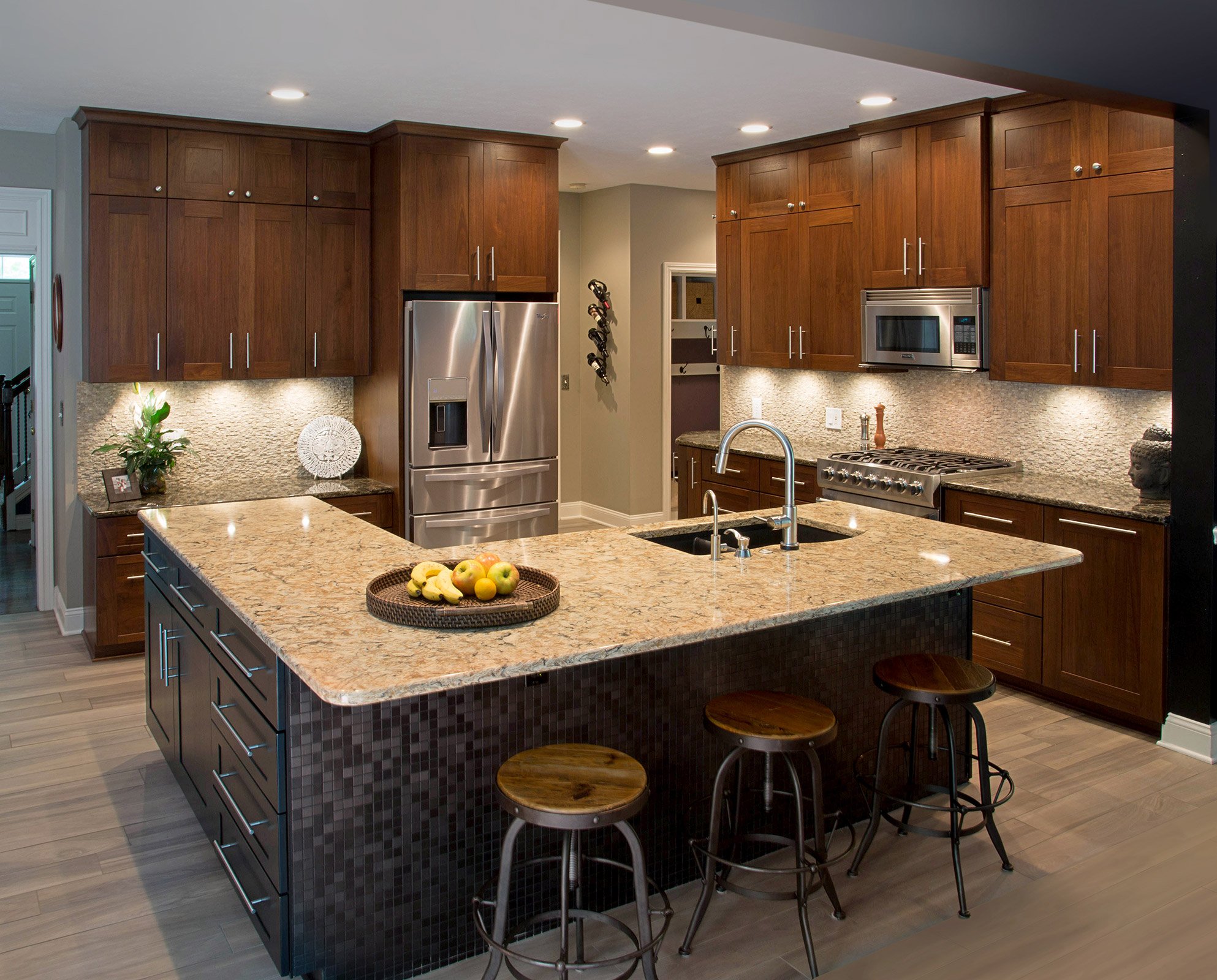
Refaced kitchen cabinets are beautiful new additions to any home, and they can completely renew your space. However, even new solid-wood doors will eventually require cleaning to keep them looking bright and attractive. Grease and residue will build up over time, and it’s essential to learn how to clean refaced cabinet doors safely, so they last as intended. We recommend beginning with the least-harsh methods and working your way up to stronger cleaners if needed. Experiment with the options listed here to see which ones work best for your kitchen.
Use Hot Water to Clean Refaced Cabinets. That’s It!
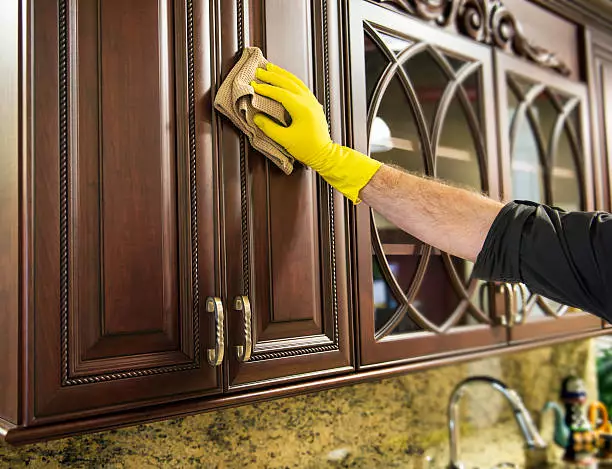
Sometimes, hot water is all needed to clean dirt and grime from your refaced cabinets. You’ll want to apply it using a soft cloth or sponge and then wipe it off promptly. This method may work for doors that aren’t particularly dirty. And hot water works better than cold water because the water molecules are more active when the water is heated. More active molecules translate into more aggressive cleaning action.
How to Clean Refaced Kitchen Cabinets with Common Dish Soap
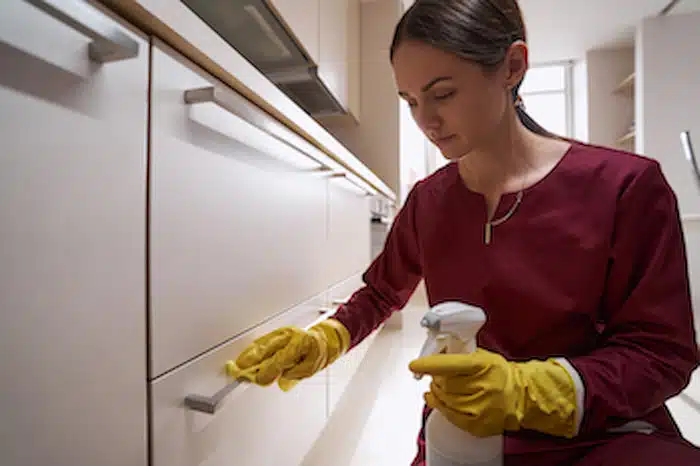
That soap you use to clean stubborn grease off your skillets and baking dishes may be the best way to clean refaced cabinets. While dish soap is gentle enough not to fade or damage the surface it’s cleaning, it also contains surfactants that breakthrough and dissolve grease. Surfactants are chemical compounds that break the surface tension of a liquid, such as water. When used to clean surfaces such as glass, aluminum, or wood, these surfactants actually ‘stir up’ activity on the surface. As a result, grease, grime, and debris are released and are more easily wiped away.
In most instances, dish liquid will not harm solid wood cabinet doors, so long as it’s applied, agitated, and then wiped away. Just don’t allow large pools of water to remain on your refaced cabinet doors for long periods of time. This can cause the wood to warp or stain. You should also avoid wiping your doors down with harsh abrasive cleaning tools such as steel wool pads, as they may scratch or mar the finish.
All-Purpose Commercial Cleaners for Cabinet Doors
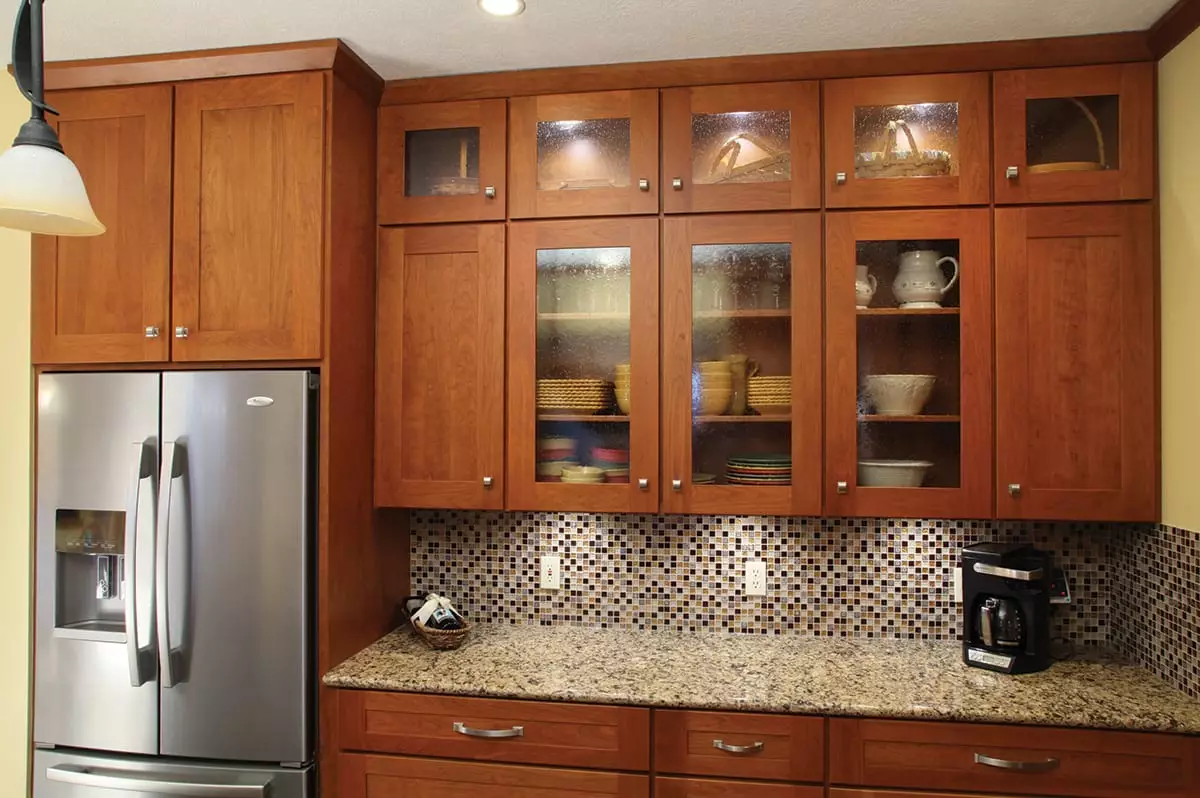
All-purpose kitchen cleaners are another solid option when you’re researching how to clean refaced wood cabinets. Make sure the cleaner you select is appropriate for cleaning wood surfaces and then follow the instructions on the bottle. Cleaners such as these may come pre-mixed in a spray bottle or concentrated in a bottle with a pour cap. It’s important to read the directions, especially if you purchase a concentrated cleaner that requires diluting with water. Applying concentrated cleaners to wood could damage your refaced cabinet doors.
How to Clean Refaced Cabinets with Homemade Cleaners
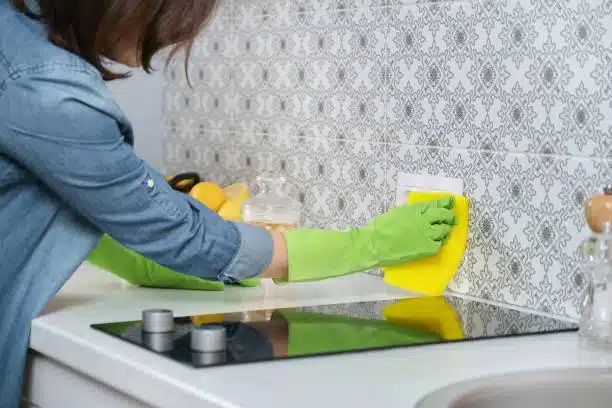
Due to the high quantity of unknown ingredients in this section in addition to the many variations, we cannot recommend homemade cleaners. Many homemade wood cleaners begin with a base of warm water and dish soap, and then add extra ingredients such as baking soda, vinegar, lemon juice, olive oil, salt, or even toothpaste.
Whichever one you decide to try, make sure you test it out on a small area of the cabinet door first, such as the inside. This way, if damage occurs, you’ll be the only one who sees it. If you have an old cabinet door, of the same material, lying around, this is a good way to test your homemade cleaners before using them on your cherished refaced cabinetry.
Kitchen Cabinet Refacing That Will Last
If you’re searching for kitchen cabinet refacing solutions to renew your kitchen without the costly price tag that comes with total cabinet replacement or kitchen remodel, American Wood Reface does excellent work. American Wood Reface provides homeowners in Ohio, North Carolina, and South Carolina with beautiful solutions for outdated kitchens and cabinetry.
